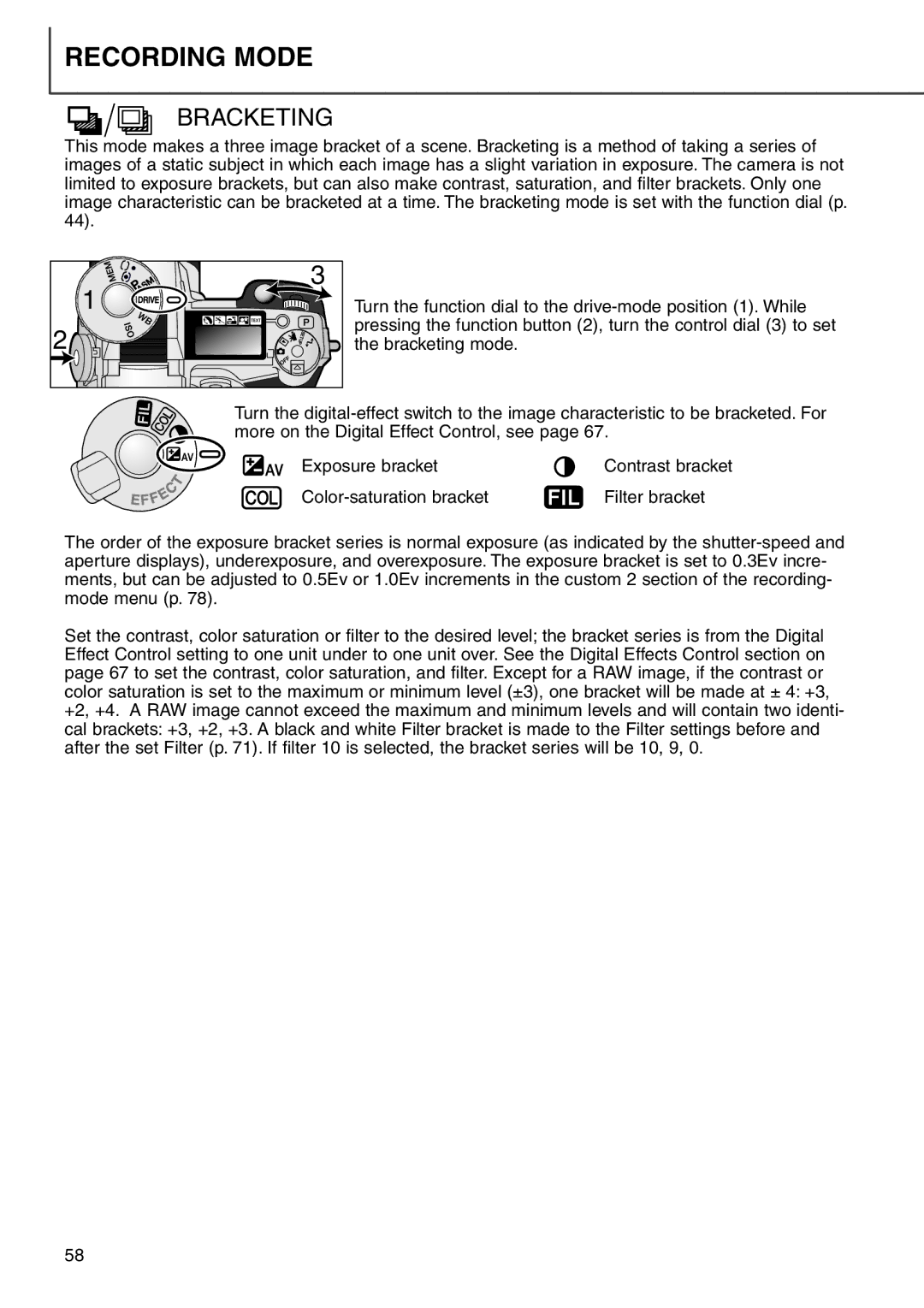
RECORDING MODE
BRACKETING
This mode makes a three image bracket of a scene. Bracketing is a method of taking a series of images of a static subject in which each image has a slight variation in exposure. The camera is not limited to exposure brackets, but can also make contrast, saturation, and filter brackets. Only one image characteristic can be bracketed at a time. The bracketing mode is set with the function dial (p. 44).
3 |
1 |
2 |
Turn the function dial to the
Turn the
Exposure bracket | Contrast bracket |
Filter bracket |
The order of the exposure bracket series is normal exposure (as indicated by the
Set the contrast, color saturation or filter to the desired level; the bracket series is from the Digital Effect Control setting to one unit under to one unit over. See the Digital Effects Control section on page 67 to set the contrast, color saturation, and filter. Except for a RAW image, if the contrast or color saturation is set to the maximum or minimum level (±3), one bracket will be made at ± 4: +3, +2, +4. A RAW image cannot exceed the maximum and minimum levels and will contain two identi- cal brackets: +3, +2, +3. A black and white Filter bracket is made to the Filter settings before and after the set Filter (p. 71). If filter 10 is selected, the bracket series will be 10, 9, 0.
58
